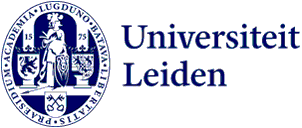
Funding for project on open-source intelligence activists and Russia's war against Ukraine
Damien van Puyvelde has received funding (over 47.000 euro) from a new Research Council pilot for his study 'Open-source research and the war in Ukraine: intelligence for the people by the people?' We asked the researcher five questions about this project and the opportunities this creates for him.
What can you tell us about the project: 'Open-source research and the war in Ukraine: intelligence for the people by the people?
D‘Russia’s war against Ukraine has brought unprecedented attention to open-source intelligence (OSINT) researchers who collect and analyse publicly available information on security threats. Some observers believe easy access to online data and information on this war has ‘democratised’ intelligence. The investigative group Bellingcat even claims to be an ‘intelligence agency for the people’. This exploratory study hopes to find out who these open-source intelligence activists are and how reliable their contributions are to the public understanding of Russia’s war against Ukraine.’
What do you hope to achieve?
‘The project will contribute to a stream of research at the University on the conflict in Ukraine, as well as reinforce ISGA’s intelligence and security group’s research on intelligence methods and their place in the public debate. My objective is to plant the seeds for a larger research programme on the role of open-source activism in the governance of contemporary security.’
Why do you want to look into this?
‘Open-source researchers have dominated much of the online debates on Russia’s war against Ukraine. They’ve also featured prominently in the media creating a hype around so-called open-source intelligence. Many of our students at ISGA seem to believe OSINT has a ‘revolutionary’ potential and are, understandably, very keen to learn more about it. However, there seems to be a discrepancy between the hype surrounding the promises of this open-source movement and what it can actually deliver and achieve. I want to investigate this discrepancy and correct misperceptions about the roles and limits of open-source information and intelligence in the public space.’
‘It’s a great opportunity to take my research into a relatively new direction that has high societal and policy relevance, and on which I’m excited to develop further expertise.’
What does obtaining this funding mean for you personally?
‘It’s a great opportunity to take my research into a relatively new direction that has high societal and policy relevance, and on which I am excited to develop further expertise. This is an issue which I’ve been following for a while and this funding will give me the means to develop a more robust research stream on open-source intelligence. This will also build on my previous research on public-private intelligence collaboration which led to the publication of my first research monograph (Outsourcing US Intelligence). On a more personal level, it’s also a great way to mark the end of my first year at Leiden University and hopefully bodes well for more individual and team successes.’
What will your next steps be?
‘The first step will be to arrange for the hiring of a research assistant who is currently pursuing a master’s at Leiden University to help me with some of the data collection and processing. This will be a great opportunity for one of our students to get more involved in academic research and develop expertise on OSINT – which is widely sought after by employers in the defence, security, and increasingly, the human rights sector. The project is organised around three core phases running from October 2023 to June 2024: 1) data collection leading to a map of non-state actors producing open-source intelligence on Russia’s war against Ukraine, 2) assessment of the methods these actors use and the reliability of their findings, 3) getting a broader community of scholars and practitioners to engage with the findings through a closed workshop next summer. This will hopefully create further opportunities to pursue this avenue of research beyond this initial round of funding from NWO.’
